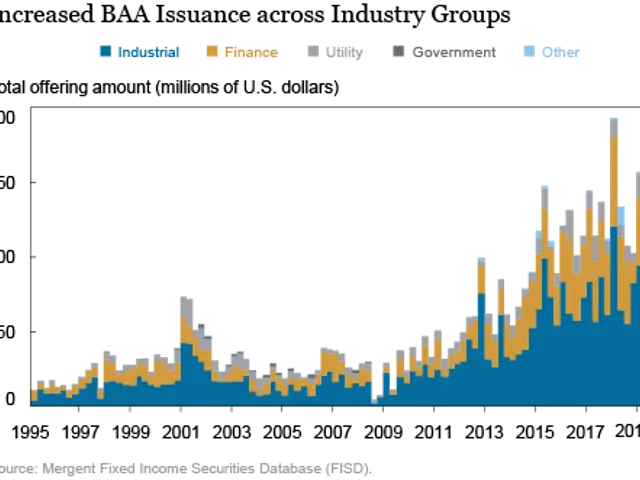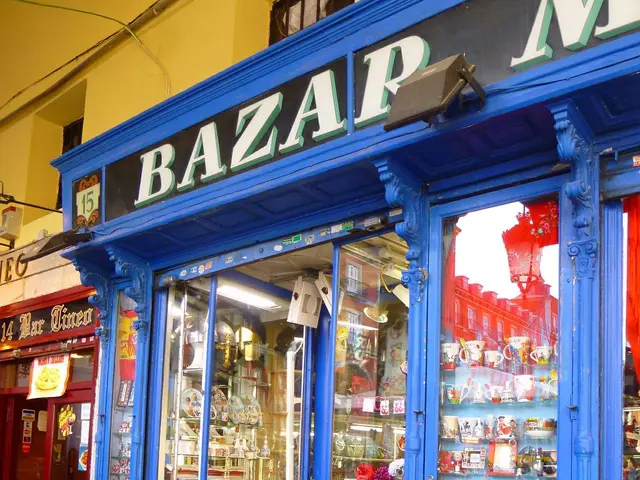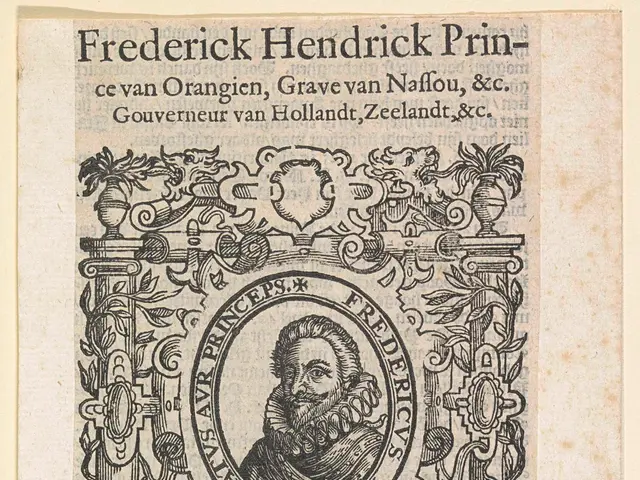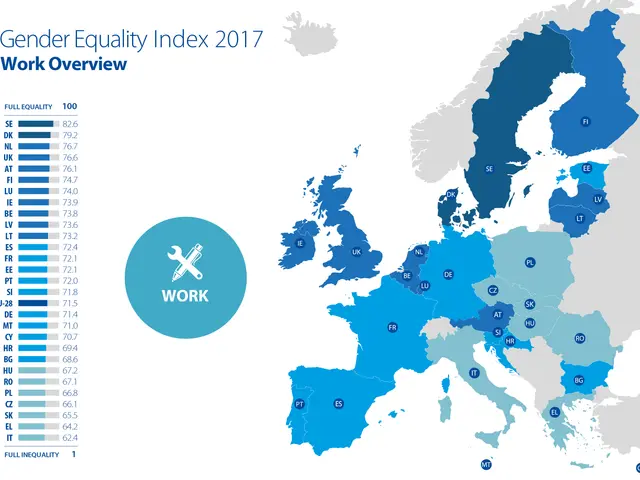LVMH Proposes to Reduce Employment by 1,200 in Its Moët Hennessy Division, Affecting 13% of the Workforce
Bringing Out the Champagne's Bittersweet Truth: The Fall of French Wine Exports
The not-so-fizzy news hits us straight— Moët Hennessy, a major player in the LVMH empire, has been grappling with a steep 11% drop in revenues, plunging them to €5.9 billion in 2024. This revelation comes hot on the heels of the subsidiary shedding about 13% of its workforce, hinting at the looming, unavoidable decline of French wine and spirits exports.
A Stirring Year Gone Wrong
The champagne and cognac demand experiencing a post-COVID normalization, coupled with a consumption slowdown and a challenging market in China, set the stage for a tumultuous 2024. This gloomy equation continued to dictate the first quarter of 2025, with a staggering 8% decline in revenues, amounting to €1.3 billion, primarily due to reduced cognac sales. The United States, with a market share of 34%, emerged as the leading consumer of these French spirits, featuring stalwart brands like Moët, Dom Pérignon, and Hennessy.
The U.S. Factor
Amid the deteriorating landscape, the luxury sector has increasingly relied on the American market to offset the dwindling Chinese sales. However, this largely optimistic approach has now been marred by the looming specter of announced tariffs by Donald Trump, a move that could considerably undermine French products' competitiveness in the U.S. The global leader in luxury goods, LVMH, has reported disappointing first-quarter sales, depicting a 2% decrease to €20.3 billion.
Bearing an array of illustrious labels such as Moët & Chandon, Dom Pérignon, Veuve Clicquot, Krug, Ruinart, Hennessy, Glenmorangie, Ardbeg, and Belvedere, LVMH's subsidiary, much like its counterparts, has felt the pinch of a slowdown in global demand.
Bonne Nouvelle: As the industry wrestles with these challenges, government officials and industry leaders are devising a strategic response. This could involve potentially pursuing WTO cases and offering support to exporters, all aimed at alleviating the economic impact and ensuring the long-term prosperity of the French wine and spirits sector.
Sources:[1] CNN Business, Sat, 1 Sep 2019, "Trump threatens new tariffs on French goods after digital tax singles out US tech giants"[2] Wine Spectator, Fri, 2 May 2020, "LVMH Group to Cut Jobs as Champagne Demand Falters"[3] Organisation Internationale de la Vigne et du Vin, 2025, "France Exports of Wine and Spirits"[4] CNBC, Wed, 12 Oct 2022, "LVMH first-quarter sales slow as U.S. consumers pull back"[5] Financial Times, Fri, 8 Jul 2022, "Economic and political challenges ahead for French wine industry"
- LVMH, a French subsidiary under the LVMH empire and a notable player in the global wine and spirits industry, experienced a decrease in revenues by 11% in 2024, amounting to €5.9 billion.
- In response to the challenges within the wine and spirits industry, LVMH, among other exporters, is considering pursuing WTO cases and seeking governmental support to address the economic impact and secure the long-term prosperity of the French wine and spirits sector.
- Donald Trump's announced tariffs pose a significant threat to the competitiveness of French products in the United States, which accounted for 34% of the market share for LVMH's subsidiary in 2024.
- Despite the declining market in China and the post-COVID normalization of champagne and cognac demand, the United States emerged as the leading consumer of French spirits in 2024, including renowned brands such as Moët, Dom Pérignon, and Hennessy.







